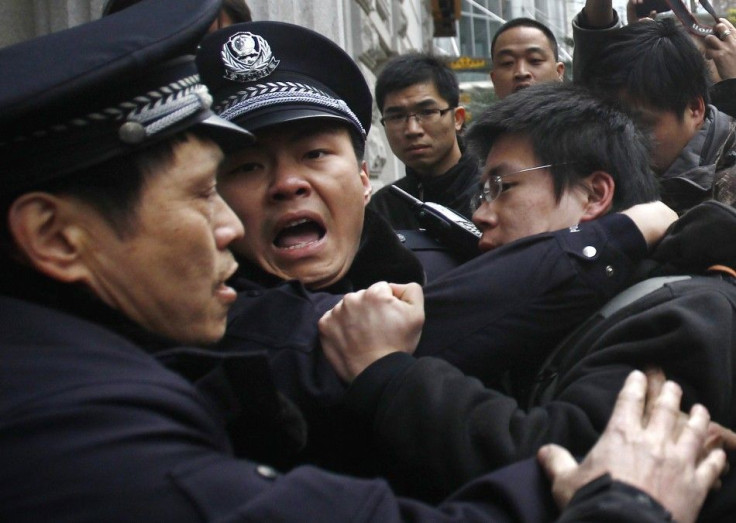China's 'Jasmine Revolution' fizzles out in two hours

The wave of anti-government protests in the Middle East and North Africa inspired by Tunisia's 'Jasmine' revolution has now reached Asia. Supporters of democracy in China planned protests similar to those rocking the Arab World, but only to be squashed.
Following in the footsteps of the Arab protesters, organizers used social media to mobilize the movement for a 'Jasmine Revolution,' the title given to the Tunisian revolt which dethroned President Zine El Abidine Ben Ali. The demands were food, jobs, housing and justice.
Online posts and tweets - on sites such as Boxun.com, also accompanied by hashtags like #cn220 on Twitter - called for protests at 2 p.m. (local time) Sunday in 13 major Chinese cities, such as Beijing, Shanghai and Guangzhou. Wangfujing, a busy shopping street, was the assembly point in Beijing. Wangfujing is very close to the historical Tiananmen Square.
But the protests failed to take off as security forces, police vehicles and Swat police were deployed to the areas. As per media reports, at least 100 uniformed police personnel were accompanied by dozens of plain-clothed officers wearing identical coats in Wangfujing.
While a brief demonstration took place in Shanghai, there were no reports of any gatherings in the other 11 cities.
China's 'Jasmine Revolution' fizzled out as it lacked the strength of the protests in the Middle East. Demonstrators who did turn up managed to make news for sporadic scuffles with police. Besides that, the people who did end up at the upmarket shopping street were curious onlookers drawn in by the presence of police forces.
It just took two hours for China's communist authorities to crush the pro-democracy uprising. Dozens of activists were detained in the process.
China also blocked phone messages and websites to thwart any similar campaigns. Bulk text messages were jammed and searches for the word 'jasmine' were blocked on Chinese micro-blogging websites.
Ever since the outbreak of protests in the Middle East, China has been wary of the Internet. In January, China blocked the word 'Egypt' from micro-blog searches indicating that the government is concerned that protests could spill over. Users who searched for the term on Sina, China's Twitter service, were greeted with the message According to relevant laws, regulations and policies, the search results are not shown.
Egypt, which was one among the many countries inspired by the Tunisian revolt, managed to dethrone Hosni Mubarak in February after less than 20 days of protests.
Meanwhile, a similar revolt in Libya has sparked a bloody crackdown.The anti-government protests have spread to the capitol of Tripoli, even as the son of the country's dictator Moammar Gaddafi, Saif al-Islam, warned on state TV that a civil war was imminent. Gaddafi is rumored to have fled into exile in Venezuela.
© Copyright IBTimes 2024. All rights reserved.





















